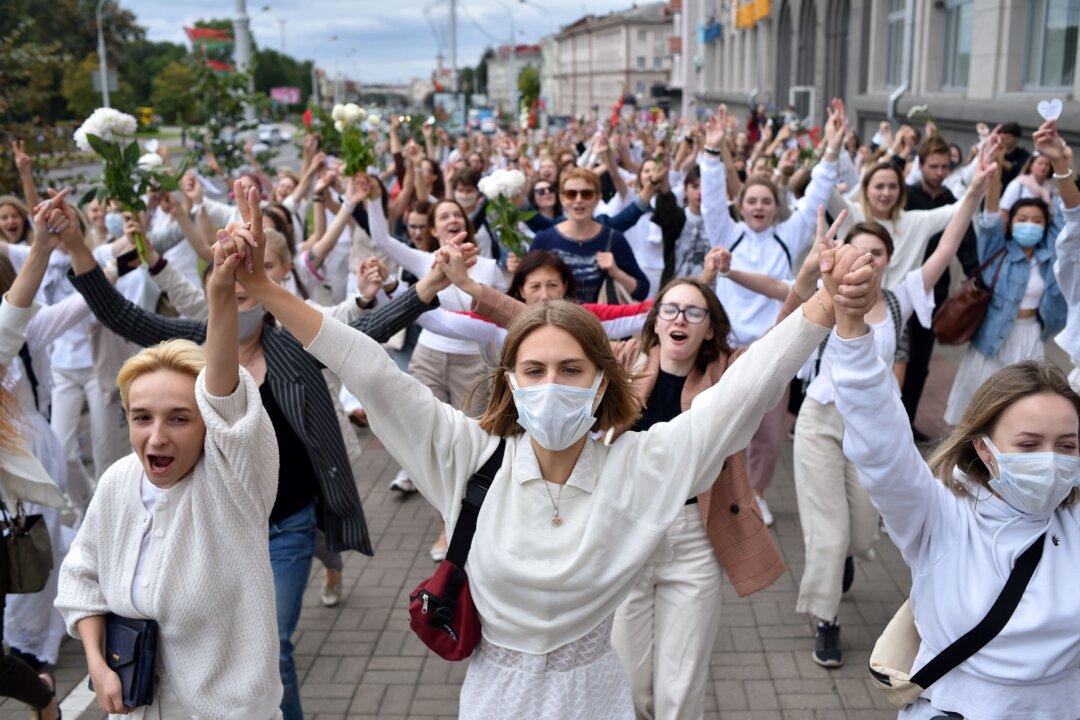MINSK, Belarus—Hundreds of women rallied across Belarus’s capital on Aug. 12 to protest a brutal police crackdown that has left hundreds injured and thousands detained while challenging election results extending the 26-year rule of the country’s authoritarian leader.
In several parts of Minsk, groups of women formed human chains, chanting “Shame!” and calling for an end to the crackdown in a bid to soften the ruthless official response to peaceful protests. Hesitant to use force against all-women rallies, police dispersed them without violence.





